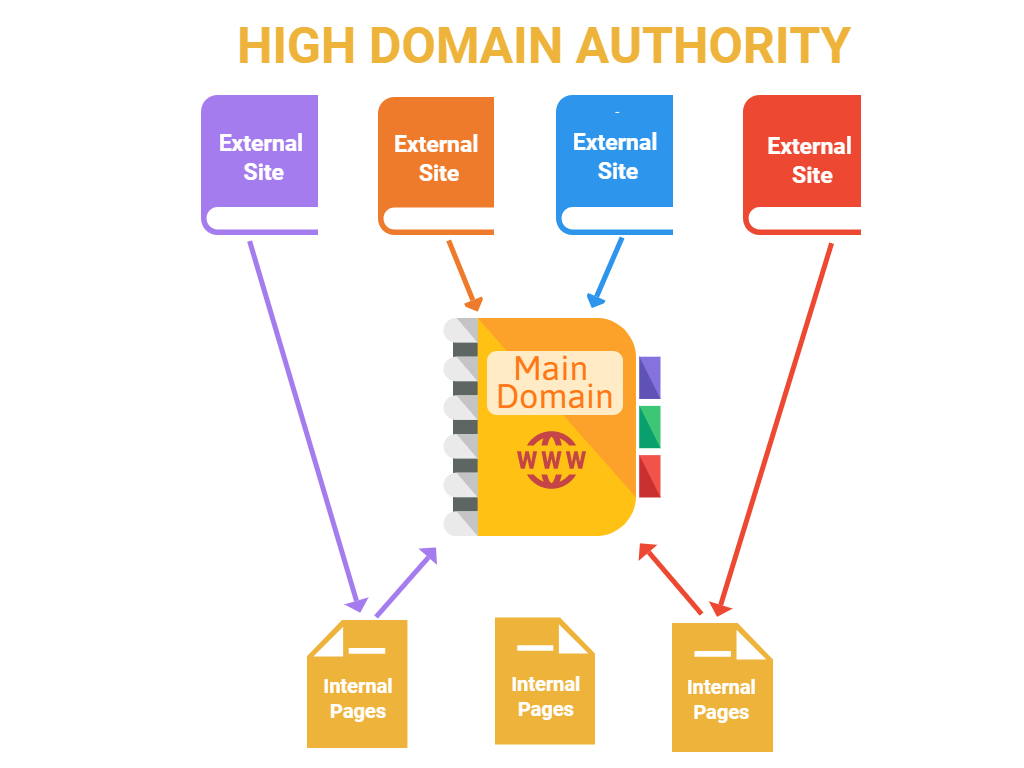

Are you looking to boost your website's domain authority? Having a higher domain authority can help your website rank higher in search engine results.
In this article, you'll learn the basics of domain authority, best practices for improving it, and some strategies for higher rankings.
Get ready to start mastering your site's domain authority!
Improving your domain authority requires following best practices. First, focus on creating quality content that is relevant to your website. Make sure the content is well-researched and informative, as search engines will reward this with better rankings.
Additionally, use the right keywords in your content so that your website is easily found. You should also focus on building quality backlinks, as these will help search engines see your website as more trustworthy.
Finally, optimize your website for both desktop and mobile devices. This ensures that your website is accessible to all users, which will help you rank higher. Follow these practices to get the best results and improve your domain authority.
Tracking your domain authority is an important step in understanding how you're doing in the search engine rankings. It can help you identify areas for improvement and set yourself up for success. A common way to track domain authority is by using a website such as Moz or Ahrefs. These tools provide metrics such as domain authority, page authority, and link profile analysis.
By measuring these metrics, you can determine how well your website is doing in comparison to other websites in your industry. Additionally, you can use analytics tools such as Google Analytics to track your website's performance. By looking at metrics such as page views, time spent on the page, and bounce rate, you can get an idea of how visitors are engaging with your website and make adjustments accordingly.
Finally, you can track your domain authority over time by monitoring your rankings on Google and other search engines. This will help you identify any changes in your rankings and provide insight into the effectiveness of your SEO strategies.

Identifying relevant keywords is key to improving your search engine rankings. Knowing which phrases and terms to focus on is essential for SEO success. To determine the best keywords for your site, begin by researching the words and phrases related to your content.
Take some time to analyze competitors' websites to see what terms they are targeting. Also, consider what words and phrases people are likely to type into search engines when looking for your content.
Once you have identified likely keywords, use keyword research tools to determine the search volume and competition for each one. This will help you determine which terms are most likely to get your site ranking higher. Finally, be sure to use your keywords naturally in your content to ensure that your rankings remain high.
Building your site's authority can help you boost your rankings, so it's important to create effective link building strategies. A great way to do this is to build relationships with other sites and bloggers.
This can help you get high-quality backlinks from sites that are in the same niche as yours. Additionally, you can use guest posting to get backlinks from other websites. Make sure that the content you submit is relevant and informative, as it will help build your authority.
You can also use social media to build relationships and get backlinks from other sites. Lastly, you can create content that is shareable and linkable, as this will help you gain more links to your website.

Creating quality content is essential if you want to boost your authority and get higher rankings. It's important to create content that's relevant, well-written, and offers value to readers. Quality content can include blog posts, articles, infographics, videos, and more.
Ensure that it's properly optimized with keywords and other SEO techniques to draw more attention to your site. Additionally, focus on creating content that's engaging and encourages readers to take action, like signing up for your email list or sharing it on social media.
Lastly, make sure you stay up to date with the latest trends and topics in your industry to stay relevant. Quality content is key to boosting your domain authority and achieving higher rankings.
Optimizing your on-page factors is key to boosting your authority and improving your rankings. You must focus on creating a user-friendly experience for all visitors, improving page load times, and structuring your content for search engine crawlers.
Start by ensuring your website is mobile-friendly and that all page elements load quickly. Then, make sure your content is relevant and up to date.
Finally, use meta tags, keywords, and search engine optimization (SEO) techniques to make it easier for search engine bots to find and index your content. With the right optimization, you can quickly improve your domain authority and climb up the rankings.

Yes, there are certain strategies that can help you quickly improve your website's domain authority. Increasing your number of backlinks and optimizing your content are two of the most effective methods. Make sure to link to relevant websites, and create content that is useful and keyword rich. Also, use social media to generate traffic to your website. Follow these tips and you will see your website's domain authority increase quickly.
It depends on the existing domain authority and the strategies you use. Generally, it can take anywhere from a few months to a year or more to see an increase in domain authority. Your efforts will be rewarded over time as your website becomes more visible and authoritative. To achieve higher rankings, you need to focus on content, SEO, link building, and other tactics. You will likely begin to see results after a few months. However, for the best results, you should continue to execute your strategies over a longer period of time.
No, domain authority is not the same as website ranking. Domain authority is a metric developed by Moz, which measures the power of a domain name based on its overall backlink profile. Website ranking is a measure of how well your website ranks on popular search engines such as Google, Bing, or Yahoo, based on the relevance of the content on your website. Domain authority is an important factor when it comes to website ranking, but it doesn't tell the full story. Other factors, such as the quality of your content, the speed of your website, and user experience, also play a role in determining your website's ranking.